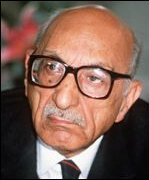WASHINGTON BLOCKED AFGHAN KING -- Did the Americans foist Hamid Karzai on the Afghan people even though Zahir Shah, the former king of Afghanistan who died this week at 92, would have been the far more popular choice? Yes, says Ishak Shariar, Afghanistan's first ambassador to the United States following the 2001 defeat of the Taliban. At the December 2001 U.N.-sponsored conference in Bonn to plan Afghanistan's future and appoint an interim government, the two main Afghan political blocs were the so-called Rome group, which supported the king, and the Northern Alliance of mainly smaller ethnic groups that had spearheaded the ground offensive against the Taliban. "There was an understanding -- the Rome group would choose the head of state, and the Northern Alliance would select the government," Shariar told World Politics Review. "Out of 14 members of the Rome group, 11 voted to restore the king, but the Americans overrode the choice, and named Karzai, a relative unknown." A member of the Pashtun ethnic majority, Zahir Shah had inherited the throne at 16. He had introduced a constitution and free elections, and given women the vote. But his reforms upset the entrenched tribal leaders and, in 1973, he was ousted in a bloodless coup. Even in exile, he continued to be widely respected throughout the country; and at the Loya Jirga -- tribal council -- convened in Kabul in 2003, picking up where Bonn left off, a sizeable group advanced the former king's name as a candidate for president.
Corridors of Power: Afghanistan’s King, European Immigration, and More

